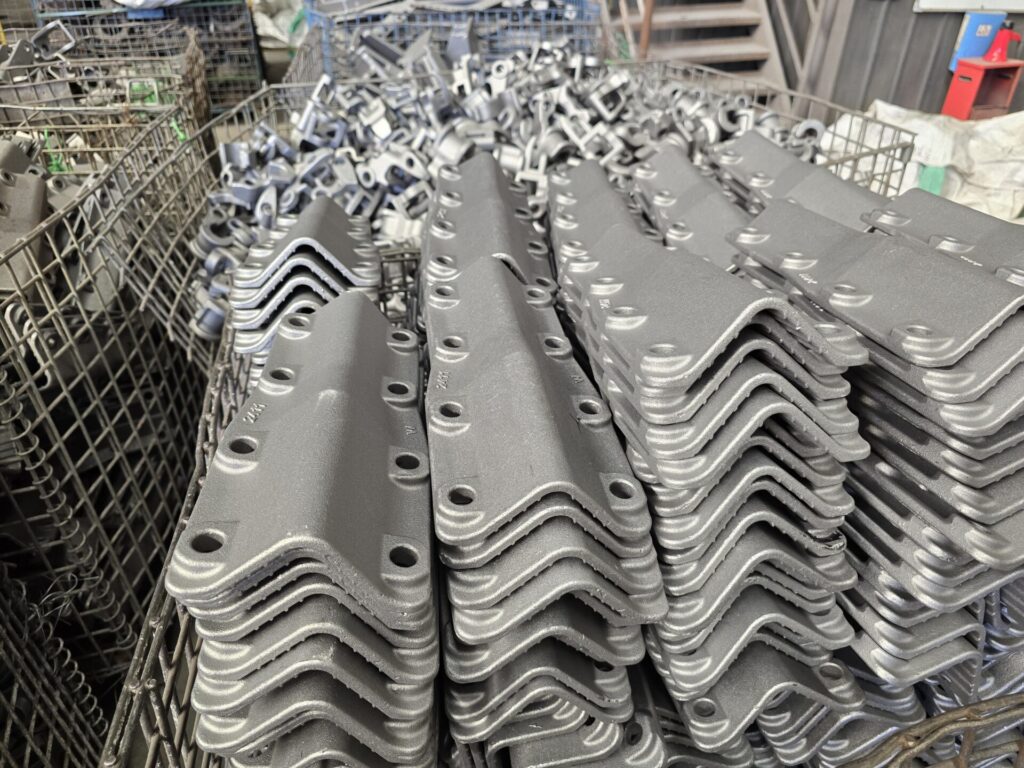Introduction
Ever wondered what gives skyscrapers their strength, cars their safety, or industrial machines their durability? Alloy steel castings might just be the secret ingredient. Renowned for their exceptional properties, alloy steel castings are indispensable in various industries. Let’s explore what makes them so special and why they’re a top choice for manufacturers worldwide.
What Are Alloy Steel Castings?
Alloy steel castings are created by melting and pouring alloy steel into molds to form desired shapes. Alloy steel itself is a mixture of iron with additional elements like chromium, nickel, molybdenum, and vanadium. These elements enhance its properties, making it stronger, more resistant to wear, and suitable for a wide range of applications.
Understanding the Unique Properties of Alloy Steel Castings
What makes alloy steel castings a cut above the rest? Their exceptional combination of strength, resistance, and adaptability. Let’s break it down:
- Strength and Durability
- Resistance to Corrosion
- Heat Resistance and Thermal Stability
- Machinability and Versatility
Strength and Durability
Alloy steel castings are known for their impressive tensile strength, allowing them to withstand heavy loads and high pressures. This makes them ideal for critical applications such as automotive components, construction materials, and industrial machinery. Simply put, they’re built to last, even in the harshest conditions.
Corrosion Resistance
Thanks to elements like chromium and nickel, alloy steel castings are highly resistant to corrosion. This property is invaluable in industries such as oil and gas, where exposure to moisture and chemicals is common. Whether it’s a pipeline or a marine structure, alloy steel ensures long-lasting performance.
Heat Resistance and Thermal Stability
Applications of Alloy Steel Castings, One of the standout properties of alloy steel castings is their ability to perform under extreme heat. This makes them indispensable in sectors like aerospace and energy production, where high-temperature environments are the norm. Turbine blades, jet engines, and thermal plant components all benefit from this property.
Machinability and Versatility
Despite their strength, alloy steel castings are surprisingly easy to machine and modify. This makes them a favorite for creating precision tools, dies, and intricate machinery parts. Their versatility extends to a wide range of applications, from medical tools to defense equipment.
Comparing Alloy Steel Castings with Other Materials
When it comes to performance, alloy steel castings often outshine other materials like cast iron or aluminum. While these alternatives may be cheaper, they can’t match the strength, corrosion resistance, and heat tolerance of alloy steel. Alloy steel offers the perfect balance of cost-effectiveness and high performance.
Applications Benefiting from Unique Properties
The remarkable properties of alloy steel castings make them invaluable across various industries:
- Automotive Industry: Used in engine parts, suspension systems, and safety components.
- Construction and Infrastructure: Ideal for structural supports and reinforcement bars.
- Aerospace Engineering: Perfect for lightweight yet durable parts like jet engines.
- Oil and Gas Sector: Essential for valves, pipelines, and drilling equipment.
Environmental Impact and Sustainability
Alloy steel castings are not only high-performing but also environmentally friendly. They are highly recyclable, reducing waste and conserving resources. Moreover, advances in production techniques have made the casting process more energy-efficient, aligning with global sustainability goals.
Common Challenges with Alloy Steel Castings
While alloy steel castings offer numerous advantages, they come with challenges. The production process is complex, requiring advanced technology and skilled labor. Additionally, the initial costs can be high. However, the long-term benefits often outweigh these drawbacks, making them a worthwhile investment.
Innovations in Alloy Steel Casting Properties
The world of alloy steel is ever-evolving. Alloy Steel Casting Grades, Recent innovations include advanced alloying techniques that enhance specific properties like corrosion resistance and thermal stability. Future trends point toward even more sustainable production methods and expanded applications in cutting-edge industries.
Why Choose Alloy Steel Castings?
The benefits of alloy steel castings are undeniable. From their unparalleled strength to their versatility, they have proven themselves in countless applications. Industries worldwide rely on them to deliver performance and reliability, ensuring the success of their projects.
Conclusion
Alloy steel castings stand out for their remarkable properties—strength, durability, corrosion resistance, and more. These qualities have made them a cornerstone in modern manufacturing and will continue to drive innovation across industries. As technology advances, the potential of alloy steel castings will only grow, shaping the future of countless applications.

